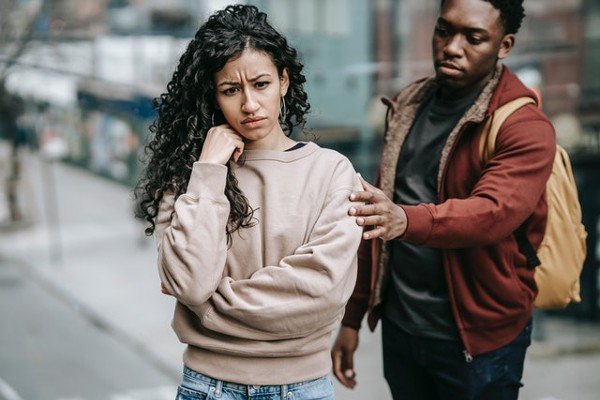What You Need to Know About the “Codependency Triangle”
Most people associate the word co-dependency with alcohol or substance use. However, co-dependency can also refer to relationships that are toxic or unhealthy.
With most relationships, there is a certain give and take that must happen in order for it to be successful. It’s a cycle of giving into the relationship just as much as you take from it. Most relationships will face conflict at some point. There will be times when your partner needs you to be present and responsive just a little more than usual. And it will be the same for you to them.
Depending on each other in times of need is important, but at some point, it can turn unhealthy.
Key Takeaways:
Co-dependency goes beyond substance abuse and can develop in any relationship when one partner consistently sacrifices their needs or identity for the other, leading to an unhealthy imbalance of dependence.
The co-dependent (or drama) triangle describes relationship roles—victim, rescuer, and persecutor—that people often switch between, perpetuating cycles of blame, enabling, and helplessness within the relationship.
Breaking the cycle of co-dependency requires awareness and active transformation, often best supported by couples counseling, where both partners work toward setting healthy boundaries and restoring balance.
Signs of a Co-Dependent Relationship
Feeling extra responsibility for the other person’s feelings and behaviors
Lack of identity, or not knowing ones self outside of the relationship
Trouble being alone or apart from someone
Putting the needs of your partner above your own
There are, of course, many other signs of co-dependency in a relationship, but those are just a few of the main ones.
The Co-Dependent Triangle
Let’s think of relationships as a cycle that is often circular and never-ending. Again, it’s the flow of giving and taking in a relationship that should always be equal in nature.
Psychologists have come up with an alternate way to describe co-dependent relationships. This way of describing toxic relationships is called a few different things. It is widely known as the co-dependent triangle, but also may be referred to as the drama triangle.
There are three main roles in the triangle. These roles are known as rescuers, persecutors, and victims. What is important to keep in mind is that these roles are not rigid and people will often switch to “performing” them, depending on the situation.
Victims
The victim is the person who always has the viewpoint of, “Poor me!” They often feel as if they are helpless or powerless. Victims are not able to make any decision or solve any problem on their own. They often feel shame and oppressed, and will place blame on anyone else but themselves.
They often depend pretty heavily on their partner, but they do not want to admit that they do.
Rescuers
In a relationship, these are the people who consider themselves the caretaker or helper. They feel the need to come to the rescue of their partner, or their behaviors and feelings, constantly. The rescuer wants to feel important and needed.
While the rescuer role is not toxic, in itself, it can also be considered the enabler role. The idea that they allow the victim/persecutor to continue to rely so heavily on them. Without setting any clear boundaries.
Persecutors
This is the person who primarily plays the role of the victim. They blame everyone else, or their partner, for their problems. As persecutors, this partner normally denies their habitual need to blame everyone else for their problems.
How to Stop the Cycle
When you are in a co-dependent relationship, it can be challenging to know how to get out of it. Breaking the cycle will look different for every relationship and partner.
One of the best ways to begin breaking the cycle is to work with a licensed therapist. When there is an unhealthy balance between two partners, it will likely stay this way without some serious transformations—in both partners.
It’s okay to admit that you are in a co-dependent relationship. Whether you recognize yourself as the victim or rescuer, there’s nothing wrong with that. However, don’t just stay in this place.
With couples counseling, we can help you transform your relationship to bring more balance for both of your lives. Let’s connect and get you started on this journey.


